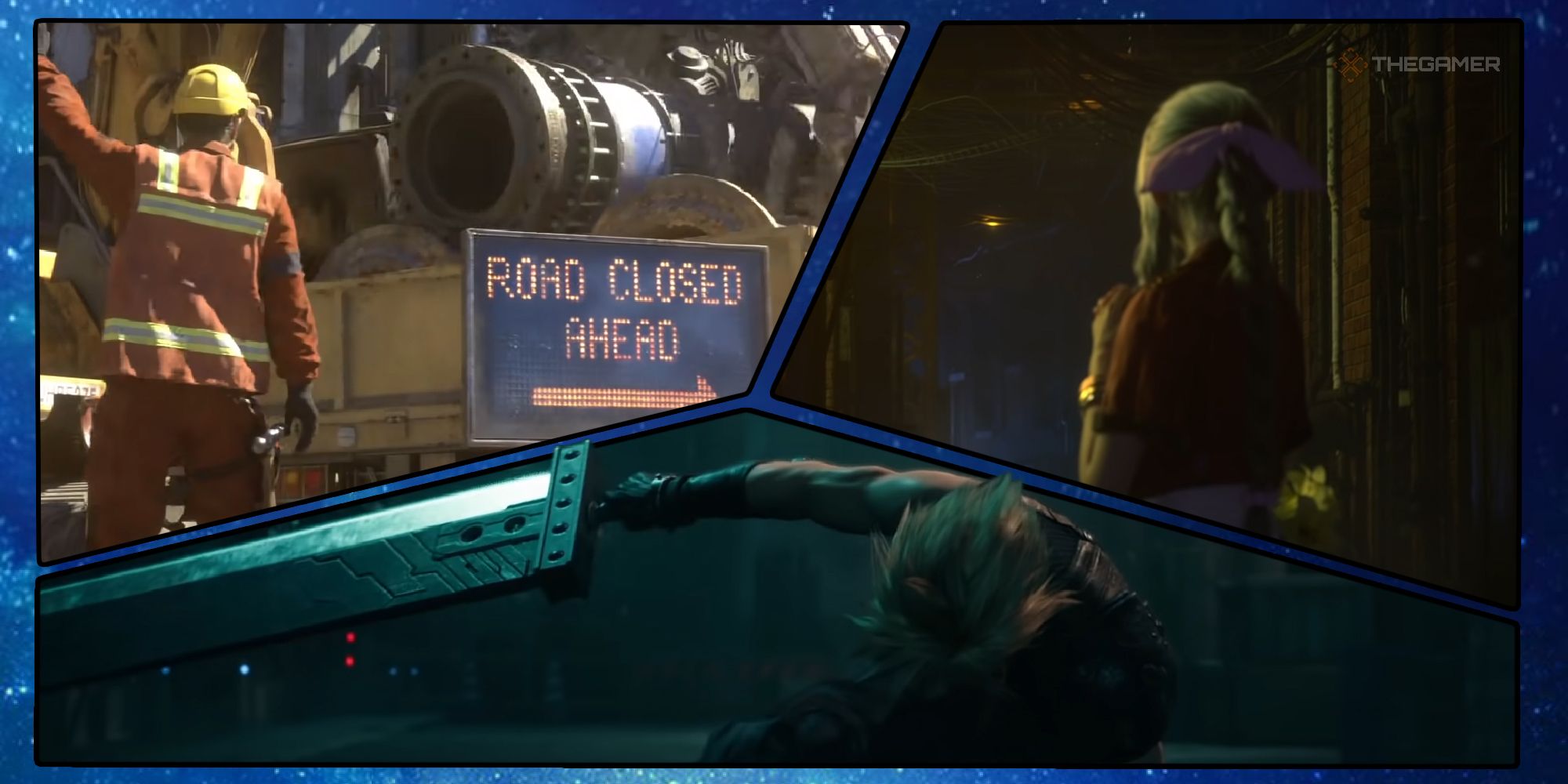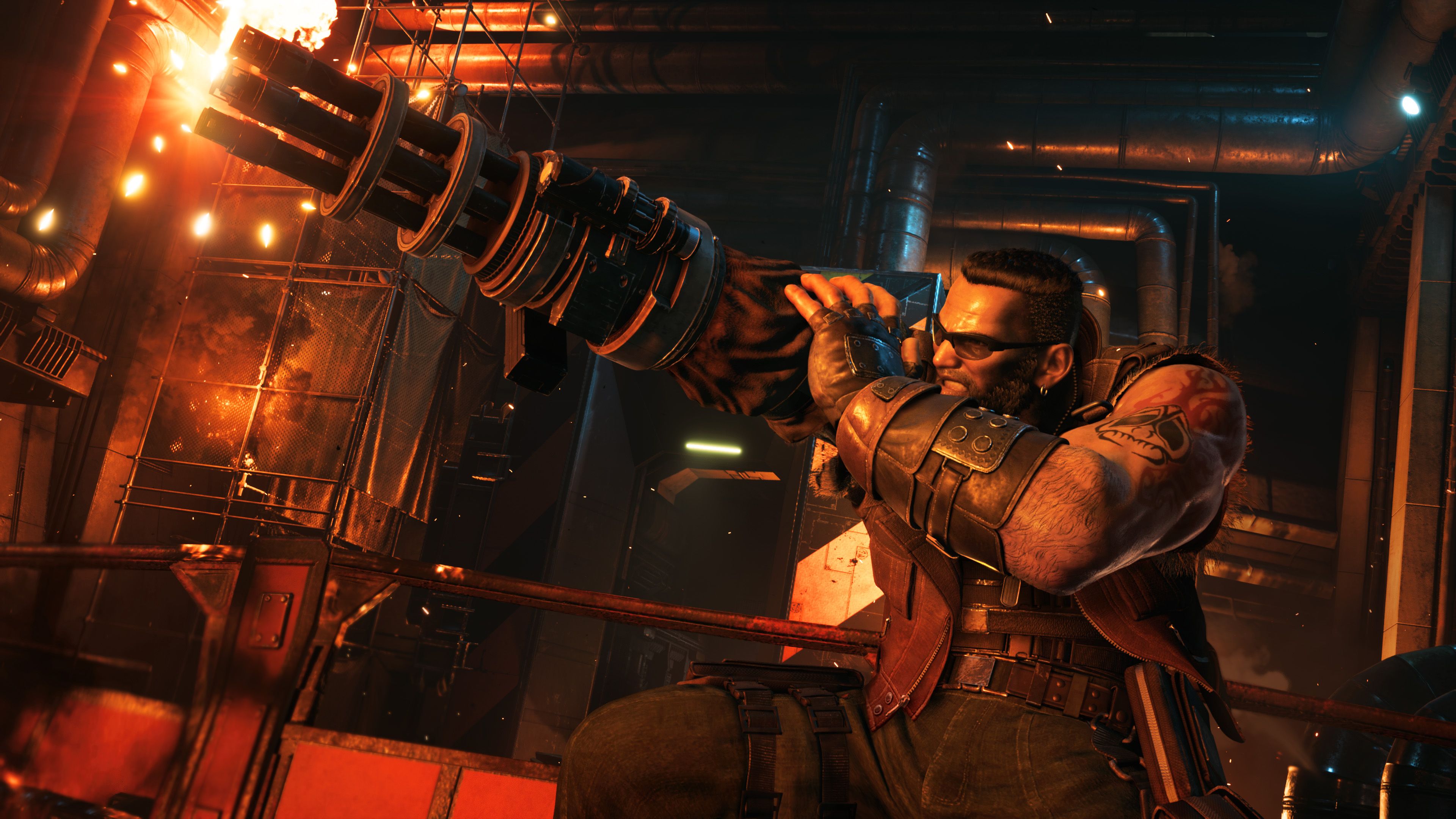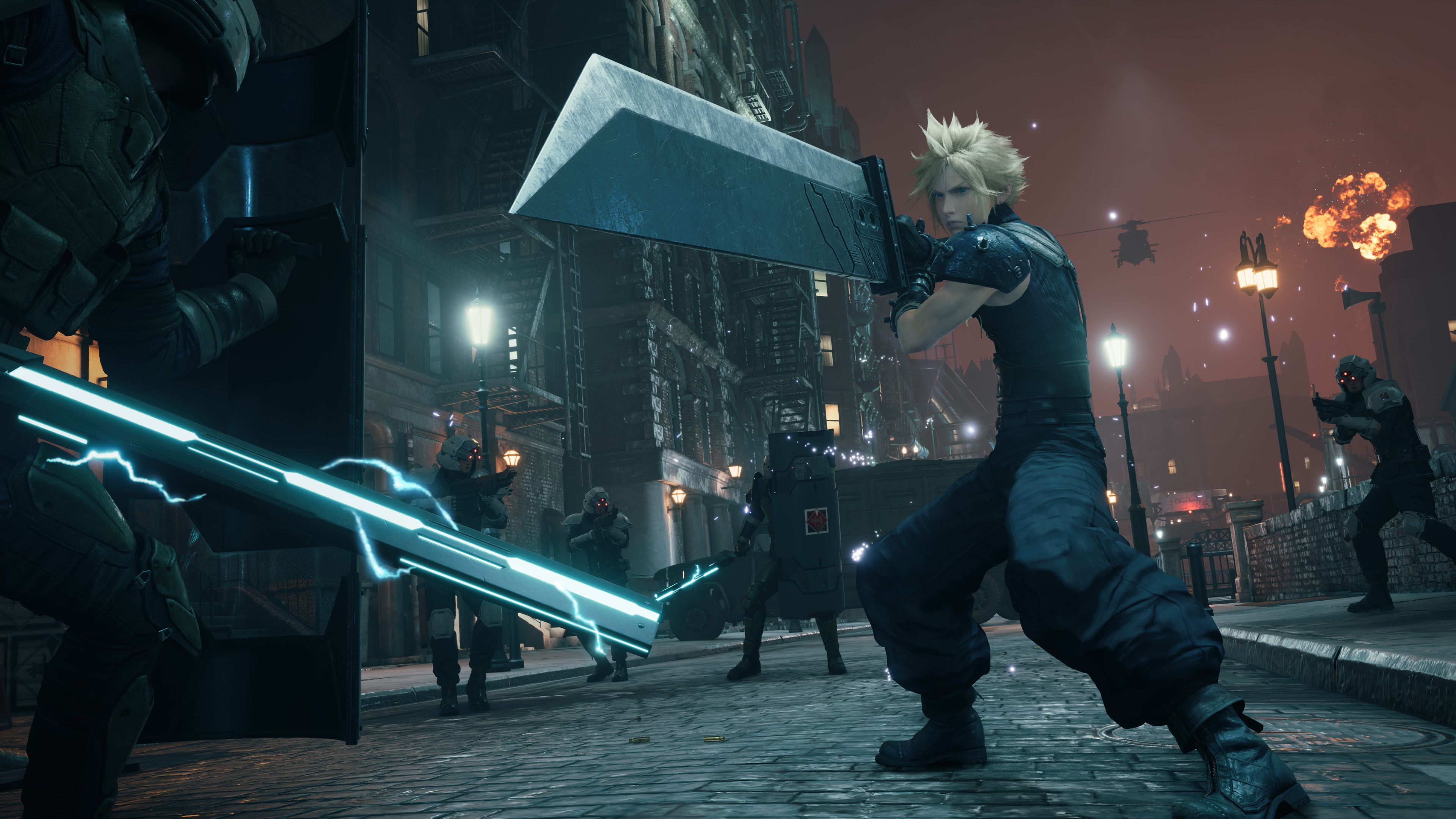Final Fantasy 7 was immediately iconic when it launched way back in 1997, becoming an icon of the original PlayStation era and catapulting JRPGs into the western stratosphere. They were no longer a niche genre dominated by imports and the occasional localisation, Squaresoft had single handedly transformed the gaming landscape and never looked back.
Cloud, Tifa, Barrett, Aerith, Sephiroth, and so many others became impromptu mascots of the genre that warmed the hearts of millions over the years, fans regularly revisiting the classic adventure despite its archaic visuals and relatively slow turn-based mechanics. Even as it grew older and older, this journey remained timeless, which is partly why the remake hit so hard. It wasn’t just a luscious visual upgrade or a mechanical overhaul, it was a transplant of the original game’s spirit that left everything that made it so special untouched.
I remember going to a preview event for the game and was imbued with a giddiness that was the furthest thing from professional. A small venue in London was tricked out to look like Tifa’s Seventh Heaven, right down to drinks behind the bar and small pieces of cutesy paraphernalia scattered about the place. If it wasn’t for all of the games journalists awkwardly milling about I could have convinced myself it was Midgar. For the day I had become your average shitmuncher, hype bursting to the rafters as I sat down to play the game’s opening like it was Christmas morning. Goodness me it was worth the wait.
Square Enix could have recreated the original opening with the exact same frames and fans would have been more than happy, content with modern hardware rendering the likes of Aerith kneeling down to tend to a singular flower in the Midgar alleyways or the camera stretching upwards to accommodate the vastness of Shinra’s Headquarters. Yet Final Fantasy 7 Remake is so much more, it is keenly aware that the world in which it inhabits is so vast and ripe for expansion, existing on a scale that the PS1 wasn't capable of doing justice. From the opening frame we see a weathered bird flying across the landscape, a dry desert giving way to an avalanche of rusted metal and industrial fumes, the ominous music making it clear that this metropolis is far darker than its technology would have us believe.
We see people living and working while children roar past on bicycles, the monotony of everyday life punctuated by smaller details like scavenging dogs and decaying plant life that make it abundantly clear that this world is dying, and few pieces of beauty remain in its fading exterior. It all feels hopeless, but as the sky darkens and the day turns into night we finally come across Aerith. The flower girl is kneeling down on the pavement, praying to a singular piece of the lifestream bursting from between the worn concrete. It’s a sign of life, a small figment of hope in a world swallowed by plight. Suddenly, the music swells as she walks into the bustling streets, staring toward the sky as a flurry of helicopters soar overhead.
The titlecard appears, and we’re thrust towards the train, Cloud and company ready to fight back against their oppressors even if it means putting innocents in harm’s way. It’s already perfect and that’s just the opening cutscene - Final Fantasy 7 Remake is so special to me. Once you actually start playing, the bombastic score and explosive pace of the Reactor Mission means you are constantly moving forward, doing battle with enemies, and navigating environments that are strange yet familiar. Each encounter is a small tutorial in its own right, explaining the ropes alongside smaller cutscenes and character interactions that help cement who these people are and what their place in this wild world means for the future.
It feels just like the 1997 classic, yet spoken dialogue and a more kinetic combat system allows it to feel so much more alive. Even Barret regaling you with the struggles of the planet during an elevator ride is gripping thanks to excellent performances and an atmosphere that is equally campy and sincere. We see flashbacks into Cloud’s past and greater development of Jessie, Biggs, and Wedge - teasing how much deeper Final Fantasy 7 Remake will go into their lives compared to the original.
Every moment is precious, and it all culminates in a boss battle with the Scorpion Sentry that cements this reimagining as an experience that isn’t afraid to be an action blockbuster when the situation calls for it, using the new and improved battle system to have enemies soar into the sky and fire down upon you from above, while Cloud must react to environmental hazards and specific strategies that require quick thinking and sudden reflexes. It all feels incredible.
Once the reactor has gone up in flames and you step out onto the streets of Midgar the scale of Final Fantasy 7 Remake becomes clear. You can walk these streets now, conversing with the populace and understanding that beneath all of the heroics you are little more than another face in the crowd that Shinra knowingly abuses. Yet this insignificance also means you and the rest of Avalanche are in a position to fight back, to stand for something that will eventually change the world forever. It’s all thanks to an opening act that cements the tone, action, characters, and message of Final Fantasy like few games in the genre or even the entire medium have ever managed to accomplish.



